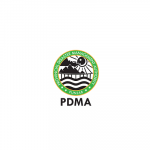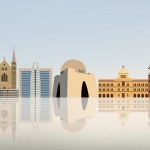Karachi: The Karachi Metropolitan Corporation (KMC) on Tuesday unveiled its budget for the fiscal year 2025–26, allocating significant resources to infrastructure development, environmental sustainability, and restoration of historic landmarks.
Mayor Barrister Murtaza Wahab presented the budget during a session also attended by Deputy Mayor Salman Abdullah Murad and Municipal Commissioner S.M. Afzal Zaidi. The total revenue for the year is estimated at PKR 55.28 billion, with expenditures set at PKR 55.13 billion—resulting in a surplus of PKR 146.27 million.
A major portion of the budget has been earmarked for development and improvement projects across the city. This includes PKR 200 million for road construction and rehabilitation, and PKR 150 million for cleaning stormwater drains. Notably, PKR 4.63 billion has been allocated for infrastructure development under 446 schemes in the district Annual Development Programme (ADP).
Read: Federal, Sindh partner on USD 3.1bn Karachi Coastal Development project
Projects include the repair of the Malir River Bridge, overlay and patchwork of Hub River Road, construction of a 1.4 km overhead bridge on the Korangi Causeway, and a 1.5 km road linking Lyari to the port and shipyard.
The budget allocates PKR 220.2 million for the solarisation of KMC buildings and infrastructure, positioning KMC as the first municipal body in Pakistan to adopt solar energy on a wide scale. Funds will also support solar-powered markets, parks, and streetlights.
Environmental sustainability is further promoted through PKR 50 million for developing urban forests at Gutter Baghicha and Kidney Hill Park. A city-wide ban on plastic bags was also announced, effective June 15, to mitigate environmental and drainage issues.
Significant funding is directed toward restoring Karachi’s historic buildings. Completed projects include Denso Hall, Khaliq Dina Hall, the KMC Building, and Frere Hall. Upcoming restorations are planned for Empress Market, Muhammad Ali Hothi Market, Machhi Miani Market, and Lea Market.
Read: Karachi property survey launched to boost tax collection
Parks and horticulture initiatives are set to receive PKR 1.77 billion, with 39 parks targeted for upgrades under the ADP. Bagh Ibn-e-Qasim will also be enhanced with new facilities, including an art museum financed through a PKR 100 million climate endowment.
Medical and health services are allocated PKR 7.29 billion, including PKR 124.65 million for modern medical and electrical equipment at KMC hospitals. Shelter homes for drug addicts and new parks near Chaukundi Graveyard will each receive PKR 50 million.
KMC has integrated employee salaries into the World Bank’s SAP system, with pensions to be added soon. Fuel tracking through PSO fleet cards has saved over 15,700 litres of fuel in July 2024 alone.
The city’s revenue will largely come from government grants (PKR 28.54 billion), K-Electric dues recovery (PKR 850 million), and funds from the World Bank-funded Competitive and Liveable City of Karachi (CLICK) project (PKR 7.43 billion).
To empower local government, Union Council grants have increased from PKR 500,000 to PKR 1.2 million, and council members attending meetings will now receive PKR 2,000 in travel allowances.
Read: Sindh, China partner to launch mini-truck assembly plant in Karachi
Mayor Wahab described the budget as a result of two years of steady reforms and development. He credited the Pakistan Peoples Party (PPP) for enabling financial and administrative stability, and emphasized the importance of continued public cooperation in reshaping Karachi.







